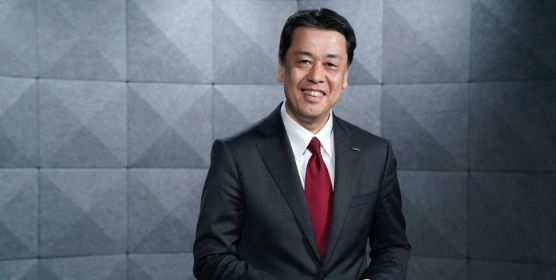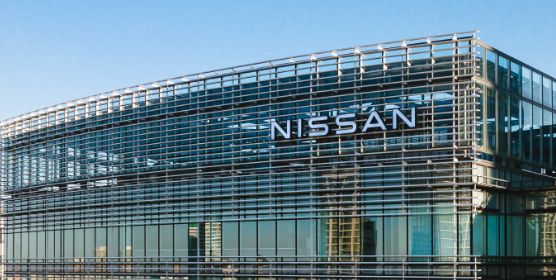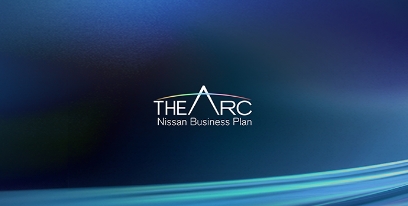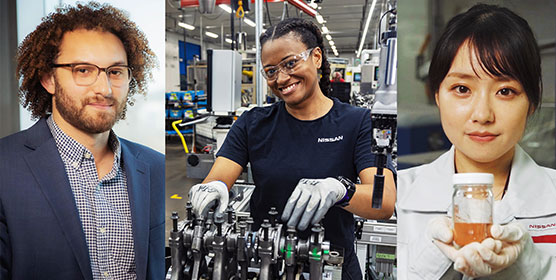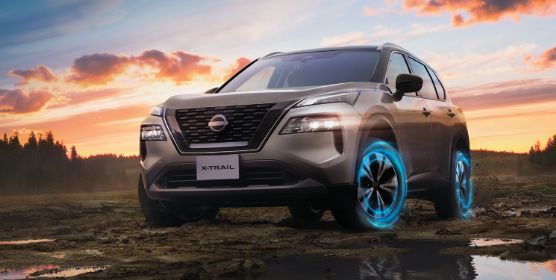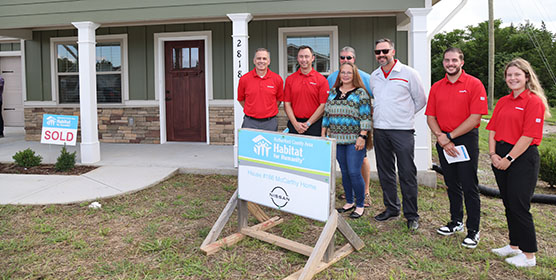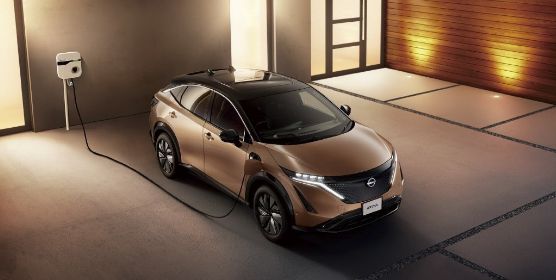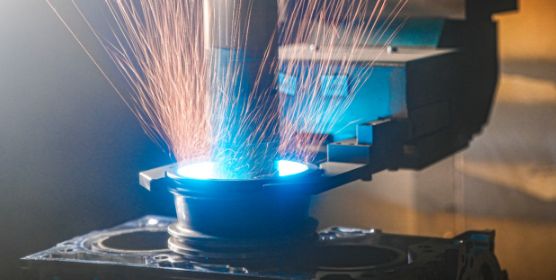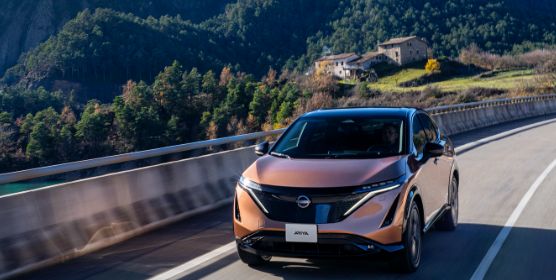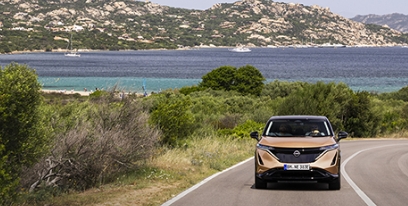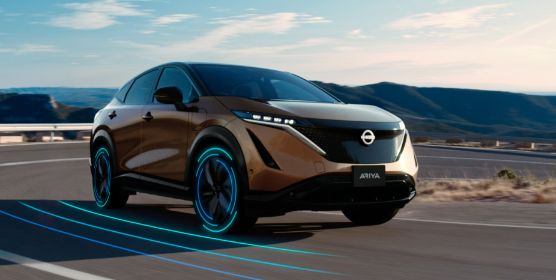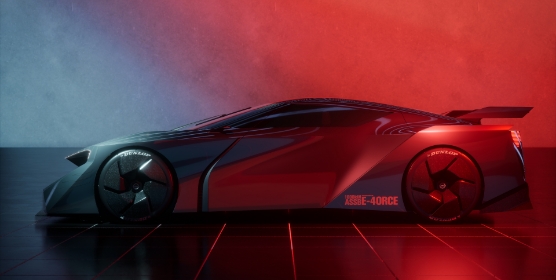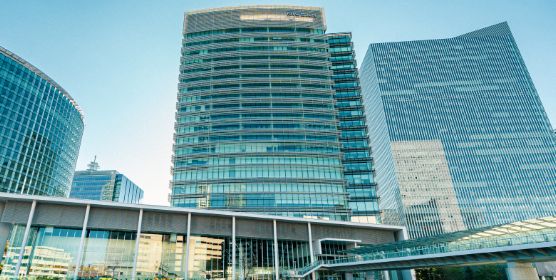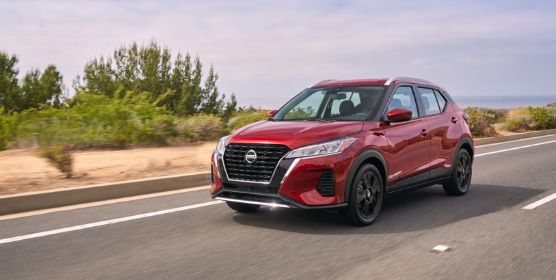Jeremie Papin SVP, Chairperson of Management Committee for Americas
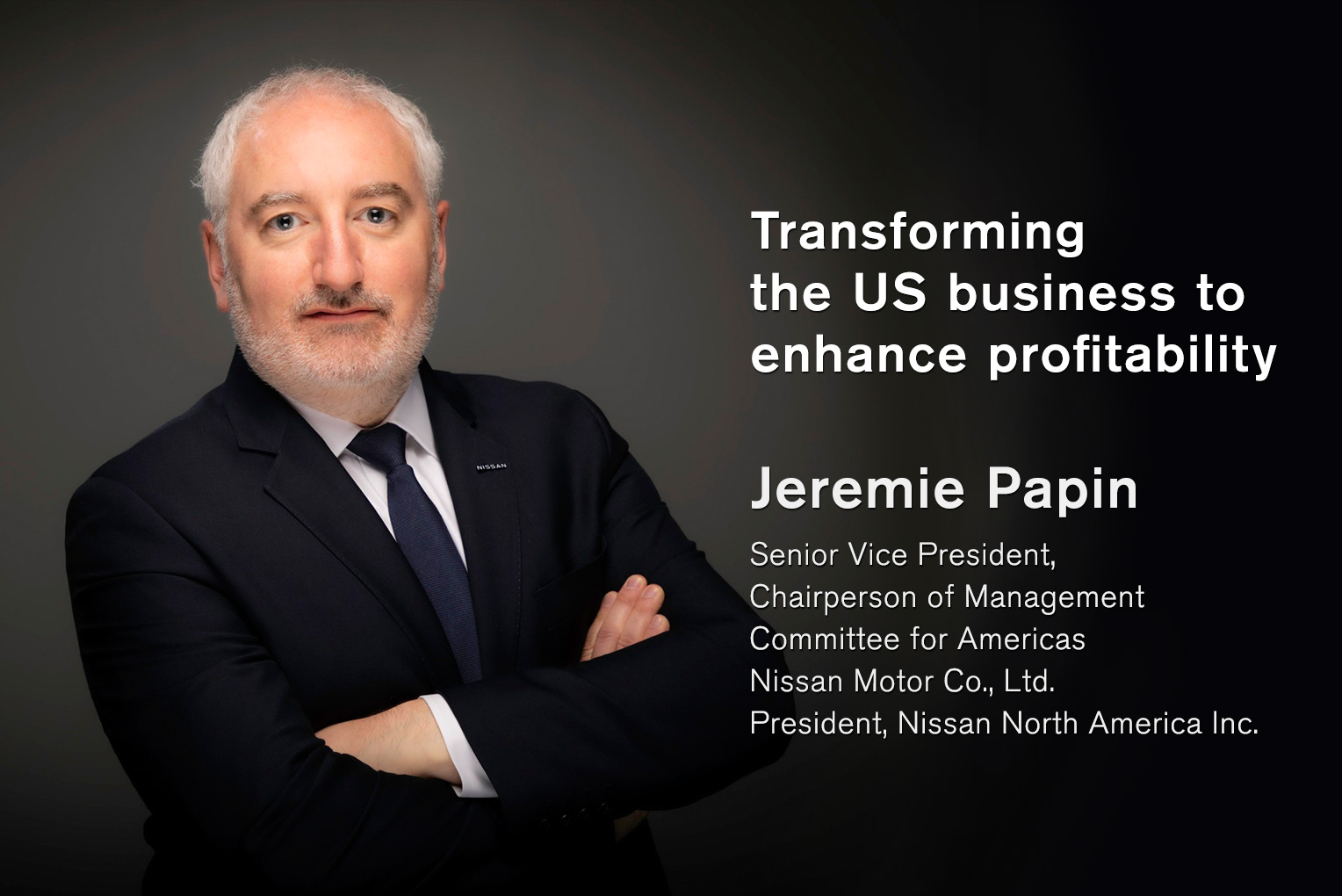
Can you tell us about the Nissan NEXT business transformation plan for the US?
The
Nissan
NEXT
business
transformation
plan
for
the
US
evolved
from
the
strategy
that
the
US
leadership
team
had
been
pursuing
since
FY2019.
We
scrutinized
our
entire
enterprise,
with
a
focus
on
changing
our
business,
products
and
culture.
Ultimately
we
developed
a
strategy
based
on
a
virtuous
cycle,
leveraging
the
launch
of
new
models
to
strengthen
our
business
fundamentals
and
rebuild
our
brand
with
a
customer-centric
mindset.
We
are
now
halfway
through
the
plan
and
are
executing
faster
and
better
than
originally
expected.
By
conducting
business
across
all
dimensions
in
a
sustainable
and
profitable
way,
we
will
earn
the
trust
and
confidence
of
our
customers,
dealers
and
suppliers.
This
will
lay
the
foundation
for
our
next
chapter,
in
which
we
will
take
advantage
in
the
growing
adoption
of
electrified
vehicles
to
add
profitable
new
business
streams.
What immediate changes have been made?
The
biggest
fundamental
change
for
our
US
business
is
how
we
set
priorities
when
we
go
to
market.
In
the
past,
we
sought
to
maximize
volume
to
cover
fixed
costs.
However,
lowering
transaction
prices
was
at
the
expense
of
our
brand
value.
Today,
our
focus
is
on
quality
of
sales.
With
the
launch
of
segment-defining
new
products
across
our
sedan,
SUV
and
truck
lines,
we
aim
at
selling
the
full
value
of
each
vehicle
and
gaining
share
with
more
affluent
customers
who
shop
based
on
their
needs.
We
also
want
to
maintain
higher
residual
values.
Ultimately,
we
want
the
customer
experience
of
buying
and
owning
a
Nissan
to
be
one
that
fosters
much
greater
loyalty
and
a
stronger
brand.
And
our
customers
are
happy
with
our
achievements
so
far:
Among
the
major
non-luxury
brands,
we
are
No.
3
for
sales
satisfaction
in
the
industry,
and
No.
2
for
customer
service
satisfaction.
How does the team in the US approach marketing and sales today?
In Marketing and Sales, we are currently pursuing six key strategies:
- Committed investment:Continued and sustained brand investment, focusing on our DNA, to connect the Nissan brand to customers.
- Sustainable volume culture and practice:Moving from a push model to a pull model and eliminating old behaviors like high days supply, high rental ratios and incentive programs which are aimed to increase sales volume.
- Stronger dealer relations:We are going “from worst to first” though transparency, improved communications, higher dealer profitability, lower days supply, and training.
- Nissan North America (NNA) – Nissan Motor Acceptance Corporation (NMAC) loyalty and profit alliance:Building a closer tie with our captive finance organization, as our customers tend to be more loyal to us when they finance with NMAC.
- Customer-first culture across Nissan:We just completed a customer disruption day where we deconstructed and rebuilt all our customer processes. We are working on six workstreams and will start implementing them in 2022.
- Strong EV-ready dealer network:The transformation of our company from ICE to EV is at the forefront of all we do, and our EV network is ready for the new ARIYA. We will have more quick chargers at our dealerships than any other OEM in the US, and training programs to transform our dealers’ mindset on EVs.
We have also completely changed our approach to messaging and advertising. In the past, we allocated about 15% of our marketing expenses to advertising and 85% to incentives. In fiscal 2021, that shifted to 31% on advertising and under 70% on incentives. We have moved to a pull strategy that exemplifies who we are and the thrilling products and innovation that we bring to the marketplace.
What role do products and technology play in Nissan NEXT for the US?
Product
is
at
the
foundation
of
our
recovery.
Our
portfolio
is
now
one
of
the
freshest
in
the
industry.
We
have
significantly
improved
our
ranking
in
third
party
assessments
of
consumer
opinions
on
our
new
vehicles.
Technology
is
also
important.
Here,
a
leading
consumer
intelligence
and
research
firm
ranks
Nissan
in
the
top
tier
in
market
depth,
or
number
of
features,
execution
of
features,
and
innovation
overall.
This
signals
to
our
customers
that
we
are
a
tech-forward,
innovative
company.
Consumer-facing
transaction
prices
are
on
the
rise,
which
means
more
profitability
for
the
company.
We
are
also
attracting
more
credit-worthy
customers
to
the
brand,
as
illustrated
by
the
increase
in
average
household
income
and
new
car
FICOs
(Credit
Score).
This
is
also
visible
in
lower
net
credit
losses.
How have these changes affected relationships with dealers and suppliers?
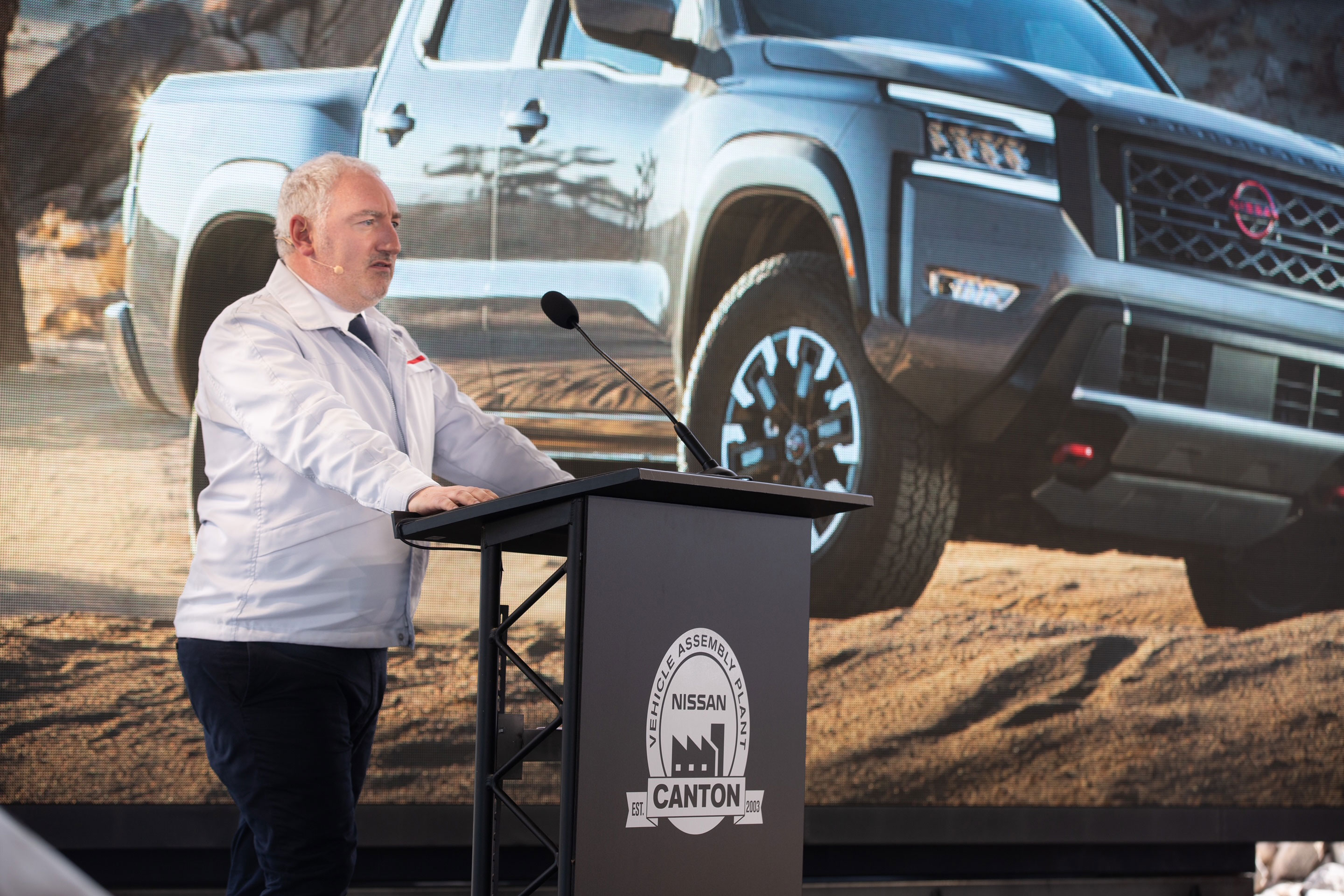
Dealer
return
on
sales
has
improved
dramatically,
which
has
given
dealers
more
confidence
in
us.
Nearly
all
of
the
new
vehicles
we
build
are
spoken
for
by
a
dealer
at
the
time
of
production,
rather
than
previously
when
we
would
use
incentive
tactics
to
spur
demand.
This
means
faster
turnover,
lower
incentives,
and
more
profitability
for
the
dealer
and
for
us.
Franchise
value
has
also
increased
over
the
last
year
and
a
half.
We
have
changed
the
way
we
work
with
our
suppliers
too,
moving
from
a
short-term
focus
on
commercial
negotiations
toward
long-term,
win-win
solutions.
More
sustainable
business
for
Nissan
also
means
a
more
sustainable
business
for
our
suppliers.
How is Nissan North America preparing for the future?
The
COVID-19
pandemic
accelerated
the
shift
of
customers
who
wanted
more
of
their
shopping
and
purchase
experience
to
happen
online.
We
went
all
in
on
e-commerce
as
a
strategic
advantage
and
became
the
first
to
offer
a
full
end-to-end
delivery
system
where
customers
can
shop,
request
a
test
drive,
apply
for
financing,
complete
their
purchase
and
even
get
service
for
their
vehicle,
all
from
home.
The
Nissan@Home
system
just
won
the
Automotive
News
PACE
Award
winner
for
the
best
new
sales
technology.
Manufacturing
fixed
costs
have
also
improved
over
the
past
few
years,
even
as
quality
results
improved
further.
One
of
the
production
lines
at
our
Smyrna
Plant
in
Tennessee
was
ranked
the
top
plant
in
the
Americas
for
initial
quality,
and
many
of
our
models
were
also
highly
rated
in
their
respective
segments.
We
know
that
this
initial
quality
will
translate
to
strong
long-term
dependability
and
durability,
improving
customer
satisfaction
and
loyalty.
Nissan’s response to electrification will be crucial. Can you share your thoughts on that?
We
are
confident
about
our
prospects
in
the
age
of
electrification.
As
a
company,
we
have
more
than
10
years
of
experience
selling
battery
electric
vehicles,
including
more
than
500,000
Nissan
LEAF
globally.
Those
LEAF
vehicles
have
been
driven
over
5
billion
miles
without
any
major
incidents
or
fires.
Over
80%
of
LEAF
owners
love
their
cars,
and
their
average
household
income
is
significantly
higher
than
the
brand
average.
We
also
have
charging
network
partnerships
with
EVgo
and
others.
We
anticipate
that
40%
of
our
total
sales
in
the
US
will
be
battery
EVs
by
2030,
and
we
intend
to
achieve
this
by
launching
segment-defining
vehicles.
The
all-new
ARIYA
will
pave
the
way
for
the
further
expansion
of
our
EV
offerings
into
the
largest
and
most
exciting
segments
in
the
industry.
This
will
be
supported
by
exciting
technologies:
advanced
driver
assistance
systems
led
by
our
ProPILOT
Assist
2.0,
which
we
intend
to
expand
across
our
lineup;
e-4ORCE
that
uses
advanced
all-wheel
drive
to
create
a
dynamic
and
exciting
driving
experience;
building
additional
customer
value
through
connectivity;
and
other
exciting
technologies
that
customers
will
love.
Meanwhile,
our
battery
business
is
about
selling
more
than
the
car.
Along
with
enabling
zero
emissions
and
CO2
credits,
we
will
promote
V2X
for
backup
power
and
grid
stabilization,
and
find
new
opportunities
to
use
our
batteries
in
other
industries.
We
will
also
focus
on
reusing
batteries
as
they
leave
the
vehicle
and
come
into
their
second
life,
to
reduce
CO2
emissions,
lower
disposal
costs
and
increase
the
residual
value
of
our
EVs.
Do you have any final comments you would like to share?
Published in February 2022


